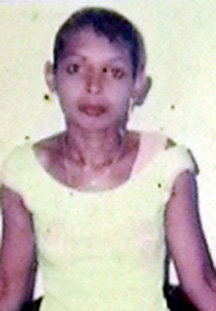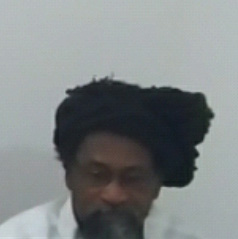The Guyana Court of Appeal yesterday upheld the conviction of Rupert Browne for the 2011 murder of his common-law wife, Seema Singh, but set aside the death sentence imposed upon him.
The appellate court instead imposed a sentence of 25 years, ordering that deductions be made therefrom for time Browne has spent in pre-trial custody.
Acting Chancellor Yonette Cummings-Edwards, who heard the matter along with Justices of Appeal Dawn Gregory and Rishi Persaud, said the court found that the trial judge could have used his discretion to impose a prison term instead of the death penalty.

On this ground she noted the court’s observation that the charge which had been levelled against Browne occurred in 2011.
The implication of this, she explained, is that it came after amendments had been made to the Criminal Law Offences Act in 2010. Prior to the amendments, a conviction for murder was only punishable by death.
With the amendments, however, the Chancellor said that judges now have a discretion to impose jail terms, while noting that the death sentence is now reserved for death resulting from specific circumstances.
The appellate court noted its finding that the instant case does not fall within those exceptional circumstances captured under the Act, and as a result allowed the appellant’s appeal on the ground of his sentence being severe.
The judge made it clear, however, that while the death sentence was being set aside, the conviction itself for the capital offence is upheld.
Prosecutor Teshana Lake had conceded that the death sentence was severe.
Through his attorney, Mark Conway, Browne had also argued that trial judge, Brassington Reynolds, had not sufficiently directed the jury on the issue of provocation.
The appellate court, however, noted that after perusing the records it had found that the judge did in fact provide adequate directions to the jury on how to treat with the issue of provocation to arrive at a verdict it [the jury] felt sure of.
Conway had also cited his client’s mental state as a ground of appeal, while arguing that it impeded the man’s full understanding of the charge levelled against him.
On this ground the appellate court noted that “everyone is presumed sane until otherwise is proven.”
The Chancellor then went on to observe that there had been no evidence before the court, or even the trial court, to substantiate that the accused at the time was suffering any incapacity in understating the charge against him.
On May 29, 2011, Browne, formerly of Helena Number One, Mahaica, stabbed Singh several times about her body and left her to die at his niece’s home.
The woman had left the home she shared with Browne the day before and spent a night at his niece, Carol Browne.
Early the next morning, the man went to his niece’s house and begged Seema to return. However, when she said no, he grabbed her and started stab her until she stopped screaming for help.
Carol Browne, who witnessed the killing, had testified that her uncle had flown into a fit of rage and began to carry out his attack. She said she became so scared she ran into a room and shut the door on Singh’s screams.
However, in an unsworn statement, Browne had denied attacking the woman. His story was that on the day of the murder, he had visited Singh and when he arrived he saw her lying in bed, surrounded by a pool of blood.
He had said he did not kill her.





